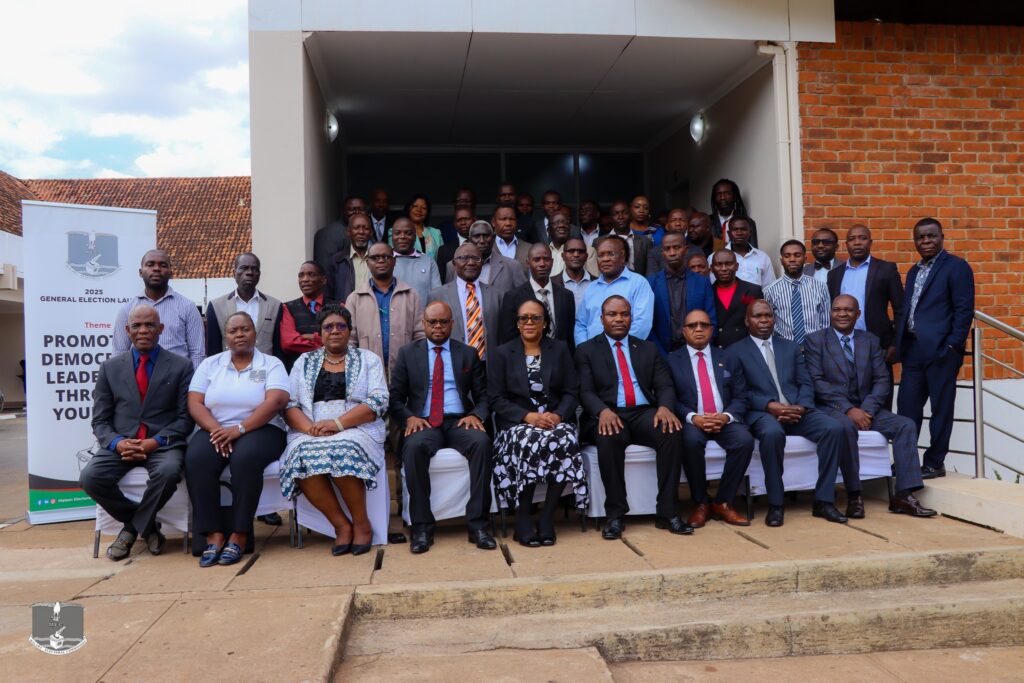The Malawi Electoral Commission (MEC) has officially declined a request by five political parties to conduct an independent audit of the country’s voter database, citing legal constraints and the Commission’s constitutional mandate.
This comes as MEC explained how the technological upgrades aimed at bolstering the transparency and credibility of the 2025 General Election, will work.
The request—jointly submitted by the Democratic Progressive Party (DPP), United Democratic Front (UDF), UTM, People’s Party (PP), and Alliance for Democracy (AFORD)—proposed a comprehensive review of all election-related digital systems.
The scope, presented to MEC on 23 May, called for an evaluation of the security architecture, data integrity, and compliance of voter registration and transmission protocols with international electoral standards.
But addressing 24 registered political parties in Lilongwe on Thursday, MEC Chairperson Justice Annabel Mtalimanja said while the Commission appreciates the concerns raised, it cannot authorize such an audit by external actors outside the framework of the law.
“The Commission meticulously and methodically reviewed the issues raised… our decision has been guided by our mandate, electoral laws, and the overarching goal of enhancing the credibility of the 2025 General Election,” Justice Mtalimanja said.

She added: “We are here to serve all political parties equally, and while consultation is our obligation, we must operate within legal boundaries.”
Despite rejecting the audit request, MEC used the platform to elaborate on its newly introduced Biometric Voter Identification (BVI) system—one of the most significant technological reforms in Malawi’s electoral history.
Under the BVI system, more than 15,200 Biometric Voter Identification Devices (BVIDs) will be deployed nationwide—one for each polling station. The devices will scan and verify voters’ fingerprints against a preloaded biometric database, ensuring that only registered voters cast their ballot and only do so once.
Mtalimanja explained that the BVI system replaces the outdated manual method of voter identification, which she said was prone to delays, errors, and fraud.
“This is not just a technical upgrade; it is a transparency and trust-building mechanism,” she said. “The system will provide real-time voter turnout data, deter impersonation, and support electronic audit trails.”
Despite the upgrade, the Commission emphasized that the BVI system will be used alongside the printed voters’ register in a hybrid approach to enhance accountability and serve as a fallback in case of technical failures.
Reacting to political party demands, Justice Mtalimanja reiterated that the introduction of these technologies, including both biometric verification and a dual-track results management framework, is sufficient to safeguard electoral integrity. She urged parties to engage in existing platforms for oversight such as dry runs, training sessions, and polling station monitoring.
MEC’s decision not to permit a third-party audit has drawn mixed reactions from political circles. While the five signatory parties claim their aim was to bolster public trust, observers say the Commission’s explanation signals a confidence in its own systems—albeit at a time when political mistrust is high.
The Commission also confirmed that voting and counting will remain manual while results will be transmitted both manually and electronically with verifications at multiple levels—from polling stations to constituency, district, and national tally centres.
MEC reaffirmed its call for political leaders and candidates to communicate responsibly ahead of the polls.
“Let us be guided by truth, not by fake news. Let us build trust, not suspicion,” said Mtalimanja.
Nominations for local government elections are scheduled from 20 to 22 June, while presidential and parliamentary nominations will be accepted from 1 to 5 July. The official campaign period begins 14 July, ahead of the polling day.








